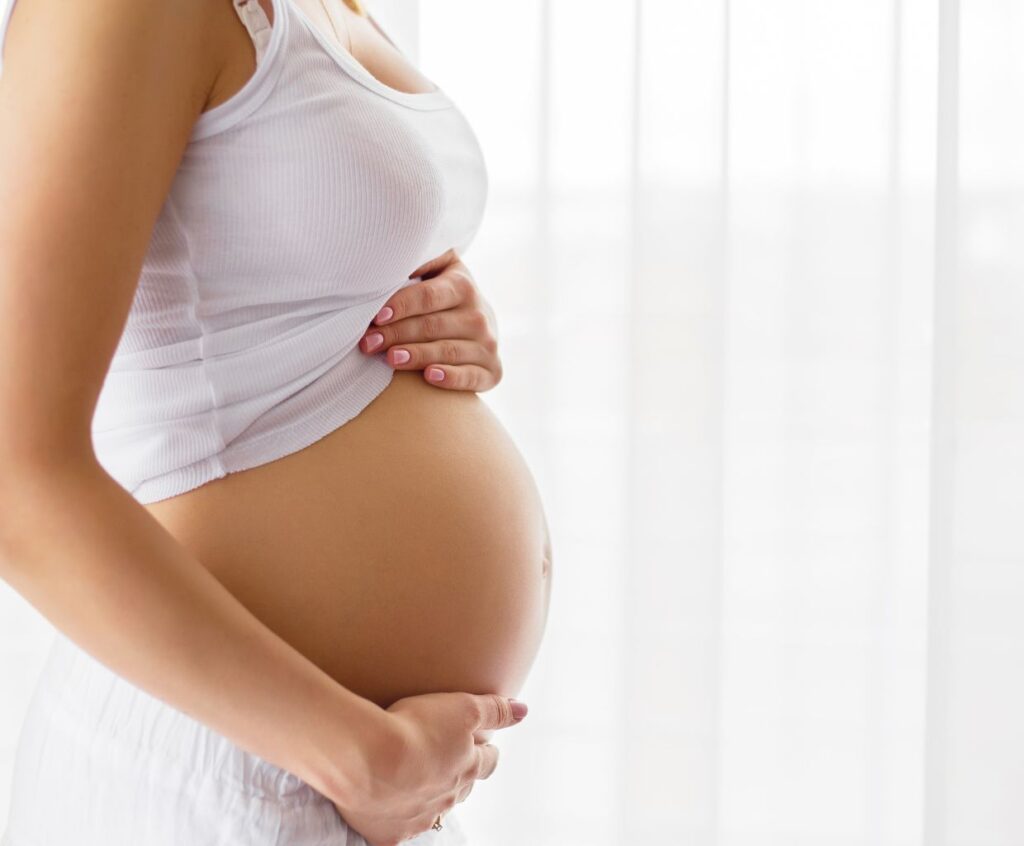How Much Wine is Safe During Pregnancy?
Welcome to this article, where we discuss consuming wine during pregnancy. It is well-known that pregnancy is a crucial time for the health and development of both the mother and the baby.
As a result, it is essential to be aware of the potential risks associated with alcohol consumption during this period.
Understanding the Risks
When a pregnant woman consumes alcohol, it easily crosses the placenta and reaches the developing fetus. This can have various harmful effects on the baby’s development and increase the risk of complications. Therefore, it is generally recommended to avoid alcohol entirely during pregnancy.
Safe Limits
Medical experts strongly advise against consuming any amount of alcohol during pregnancy. Even small quantities can potentially harm the developing baby. There is no known safe level of alcohol consumption during this crucial period.
Potential Risks
Drinking alcohol during pregnancy can lead to a range of issues, including:
-
- Increased risk of miscarriage or stillbirth
-
- Premature birth
-
- Low birth weight
-
- Developmental delays
-
- Learning difficulties
-
- Behavioral problems
-
- Facial abnormalities (Fetal Alcohol Syndrome)
Alternatives to Wine
If you enjoy the taste of wine or are used to having a glass with a meal, plenty of non-alcoholic alternatives are available. Consider opting for sparkling water, mocktails, or fruit juices that can provide a refreshing experience without the risks associated with alcohol.
Is there a recommended maximum limit of wine consumption that is considered safe during pregnancy
There is no known safe level of alcohol consumption during pregnancy. The American College of Obstetricians and Gynecologists (ACOG) recommends that pregnant women avoid alcohol altogether. Alcohol can pass through the placenta to the developing baby and cause a range of physical, behavioral, and intellectual disabilities known as fetal alcohol spectrum disorders (FASDs).
Therefore, it is best to be cautious and abstain from consuming wine or any other alcoholic beverages during pregnancy.
What are the potential risks and effects of consuming any amount of wine during pregnancy?
Consuming any amount of wine during pregnancy can pose several potential risks and effects on the developing fetus. These include:
1. Fetal Alcohol Spectrum Disorders (FASDs): The most severe consequence of prenatal alcohol exposure is FASDs. These are a range of physical, behavioral, and cognitive impairments that can affect the child for their entire life. FASDs can cause facial abnormalities, growth deficiencies, intellectual disabilities, learning and behavioral problems, and other developmental issues.
2. Miscarriage and stillbirth: Drinking alcohol during pregnancy increases the risk of miscarriage and stillbirth. The alcohol can disrupt the normal development of the fetus, leading to pregnancy complications and potentially tragic outcomes.
3. Premature birth and low birth weight: Alcohol consumption during pregnancy can increase the risk of premature birth, resulting in the baby’s birth before its organs fully develop. It can also lead to low birth weight, which can have long-term health consequences for the child.
4. Developmental delays: Alcohol can affect the development of the baby’s brain, leading to delays in motor skills, speech and language development, and other cognitive functions. These delays can have a lasting impact on the child’s academic performance and overall development.
5. Behavioral problems: Children exposed to alcohol during pregnancy are more likely to exhibit behavioral problems, such as hyperactivity, attention deficits, and difficulty with impulse control. These issues can persist into adolescence and adulthood.
6. Alcohol dependency: Prenatal alcohol exposure may increase the child’s likelihood of developing alcohol-related problems later in life. They may have a higher risk of developing alcohol use disorder or other substance abuse issues.
Pregnant women need to avoid consuming any amount of wine or any other alcoholic beverage to minimize these potential risks and protect the health and well-being of their unborn child.
Can I drink an occasional glass of wine while pregnant?
While heavy drinking is universally discouraged for pregnant women, some studies have found that it might be safe to have a glass of wine occasionally. However, most healthcare providers still advise against any alcohol during pregnancy. It is important to note that there is no known safe level of alcohol consumption during pregnancy.
Even small amounts of alcohol can potentially harm the developing baby. Alcohol passes quickly from the mother’s bloodstream through the placenta to the baby, leading to a range of physical, behavioral, and intellectual disabilities known as fetal alcohol spectrum disorders (FASDs).
While some studies suggest that occasional, light drinking may not have adverse effects, the evidence is still limited, and the potential risks outweigh any potential benefits. The safest approach is to abstain from alcohol entirely during pregnancy.
It is always best to consult your healthcare provider for personalized advice regarding alcohol consumption during pregnancy. They can provide the most up-to-date information and guidance based on your situation.
Does drinking wine make you put on weight?
One common health effect of regular wine use is significant weight gain, which can have physical and mental health consequences. Drinking wine every night causes weight gain, which can be a genuine concern among wine enthusiasts.
While moderate wine consumption is not likely to cause significant weight gain, excessive or frequent consumption can contribute to weight gain. Wine is high in calories, with around 120-150 calories per glass. These calories can add up quickly if you consume multiple glasses in one sitting or drink wine frequently.
Additionally, alcohol can stimulate your appetite and lead to overeating, especially when paired with high-calorie foods. It can also lower inhibitions, making you more likely to consume unhealthy food.
Furthermore, alcohol, including wine, is metabolized differently in the body. When you consume alcohol, your body prioritizes metabolizing it over other nutrients, such as carbohydrates and fats. This can result in the accumulation of these nutrients as body fat.
It’s important to note that weight gain is not solely determined by wine consumption but is influenced by overall diet, physical activity, and genetics. If you’re concerned about weight gain, consuming wine in moderation and maintaining a balanced and healthy lifestyle is recommended.
How Much Wine is Safe During Pregnancy? – Conclusion
It is crucial to prioritize the mother’s and developing baby’s health and well-being during pregnancy. Therefore, it is best to avoid consuming any amount of alcohol, including wine, throughout this period.
By making this choice, you are responsible for ensuring a healthy pregnancy and giving your baby the best possible start.



